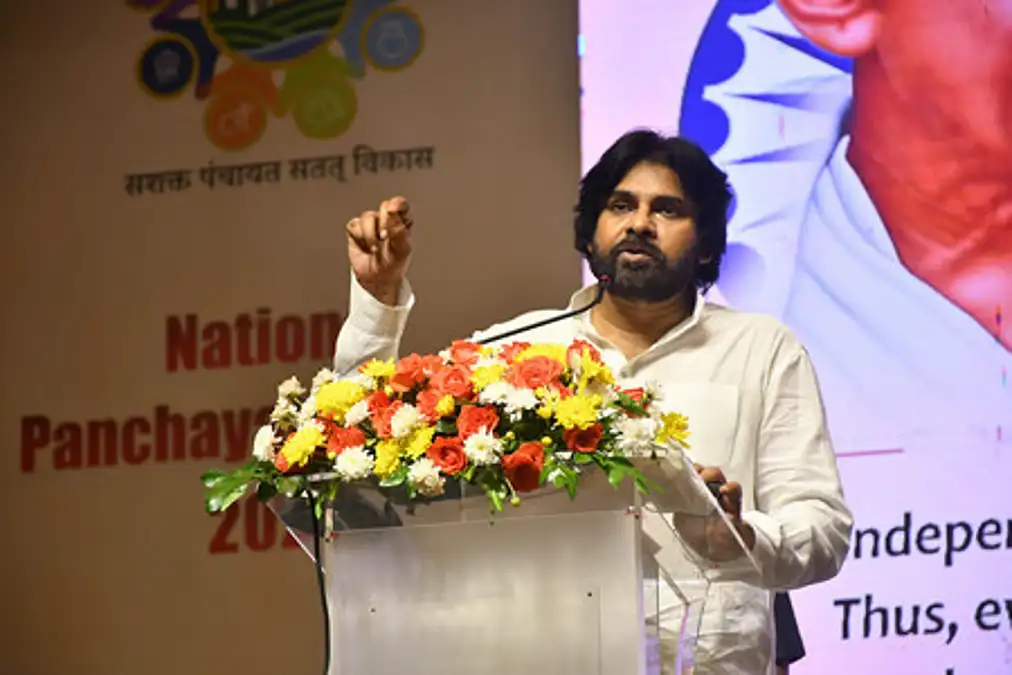Pawan Kalyan Raises Alarm Over Terror Threats in Southern States, Cites Rohingya Migration and Coastal Security Gaps
Actor-turned-politician Pawan Kalyan recently raised serious concerns about internal security in India’s southern states. During a public address, he claimed that these regions have become vulnerable to terrorism due to increasing infiltration threats and unchecked migration. His comments have ignited fresh debate about border control, coastal safety, and national security.

Kalyan, who leads the Jana Sena Party and allies with the NDA coalition in Andhra Pradesh, pointed to two key issues: the rising presence of Rohingya refugees and weak coastal surveillance.
Rohingya Migration Sparks Security Fears
The Rohingya refugee situation remains a contentious issue in Indian politics. Fleeing persecution in Myanmar, many Rohingya Muslims have sought refuge in countries like India. While humanitarian groups call for compassion, Kalyan focused on the possible security risks posed by undocumented migrants.
He stated that large numbers of Rohingya migrants have reportedly settled in southern states like Telangana, Tamil Nadu, and Andhra Pradesh. “This isn’t just a matter of law enforcement—it’s a serious national security concern,” he warned. “How are so many entering the country without detection? What happens if we ignore this trend?”
Although the central government has attempted to identify and deport illegal migrants, enforcement often falls short, especially in less monitored coastal areas.
Terror Groups Eye Southern States
Northern states have historically faced the brunt of terrorism due to their proximity to international borders. But Kalyan warned that southern states now face growing risks. He attributed this shift to limited security infrastructure and insufficient vigilance.
He highlighted India’s extensive coastline—from Andhra Pradesh to Kerala—as a vulnerable entry point. “We have thousands of kilometers of coastline. Are we watching every inch? Even one gap can open the door to a disaster,” he said.
Defense analysts have echoed similar warnings in the past. After the 2008 Mumbai attacks, which involved sea routes, India strengthened security along the western coast. But the southern coastline still lacks similar protective measures.
Political Reactions Follow Kalyan’s Remarks
Kalyan’s remarks surfaced at a time when national security is becoming a major election issue. Supporters praised his stance, while critics accused him of creating fear for political gain.
A leader from Andhra Pradesh’s ruling YSR Congress Party responded, “We acknowledge the concerns, but making sweeping statements can spread unnecessary fear. We are actively working with central forces to secure our borders and coastline.”
On the other hand, BJP leaders endorsed Kalyan’s comments. They claimed his views matched their long-standing focus on internal security and stricter immigration control. Political observers believe Kalyan’s warning may aim to appeal to voters who favor tough national defense policies.
Coastal Surveillance Needs Urgent Upgrades
Since the 2008 Mumbai attacks, India has made progress in coastal security. The Navy, Marine Police, and Coast Guard now share intelligence and patrol the waters. Yet, major challenges remain—especially in states with long coastlines and limited resources.
Several fishing communities along the Andhra and Tamil Nadu coastlines say they rarely see patrols. Experts point to poor staffing, outdated equipment, and communication gaps as key reasons for the vulnerability.
Kalyan urged the government to invest in technology like drones, radar stations, and high-tech surveillance systems. “We need proactive solutions. Let’s not wait for tragedy to strike,” he asserted.
Citizens Must Stay Alert
Kalyan also encouraged ordinary people to stay vigilant. He said the public plays a crucial role in keeping communities safe. “Everyone has a part in national security. If you see something unusual, report it. Vigilance starts with us,” he said.
Security experts agree. Community awareness and cooperation help detect threats early and strengthen local safety measures.
A Call for Stronger National Security Strategy
Security specialists believe Kalyan raised valid points. While his tone may have stirred controversy, many agree that India must not overlook southern states when planning security measures. These states house major cities, ports, and IT hubs, making them attractive targets for terror groups.
India needs a nationwide security strategy that doesn’t just focus on land borders. Stronger coordination between central and state forces, better intelligence sharing, and modern surveillance systems are critical. Authorities must also train and equip local police forces to deal with evolving threats.
Final Thoughts
Pawan Kalyan’s warning about terrorism threats in southern India has placed national security back into the spotlight. Whether his claims stem from genuine concern or political strategy, his remarks point to real gaps in surveillance and border management.
As the nation heads into another election cycle, issues like border control, coastal security, and internal threats will likely play a central role in political discourse. For many, Kalyan’s message is a reminder: security isn’t just the government’s job—it’s a collective responsibility that requires both policy reform and public engagement.






